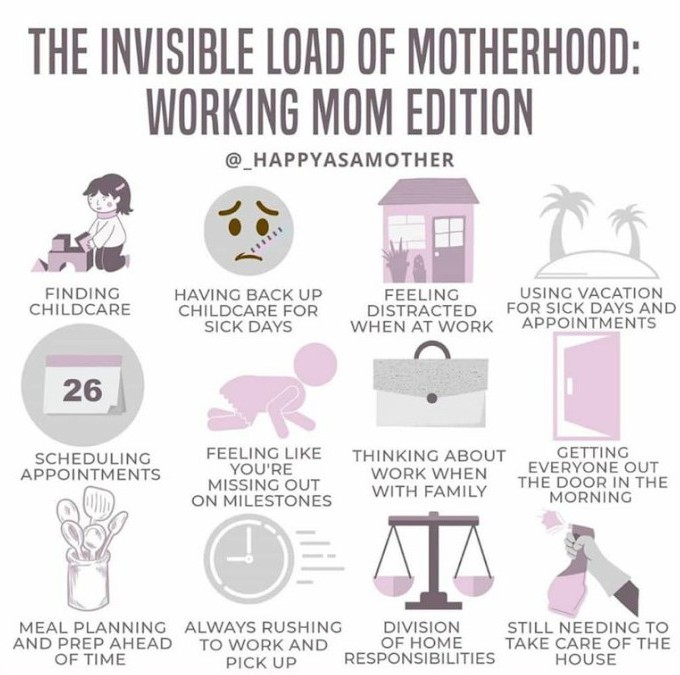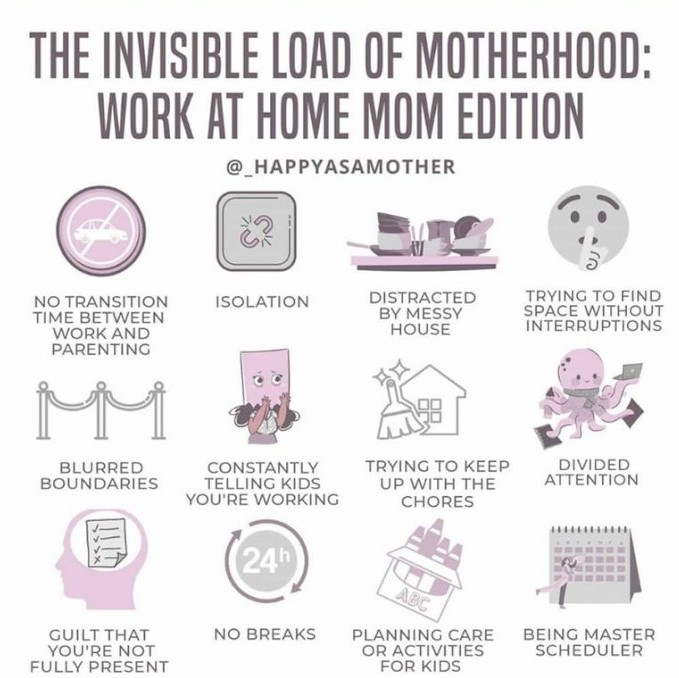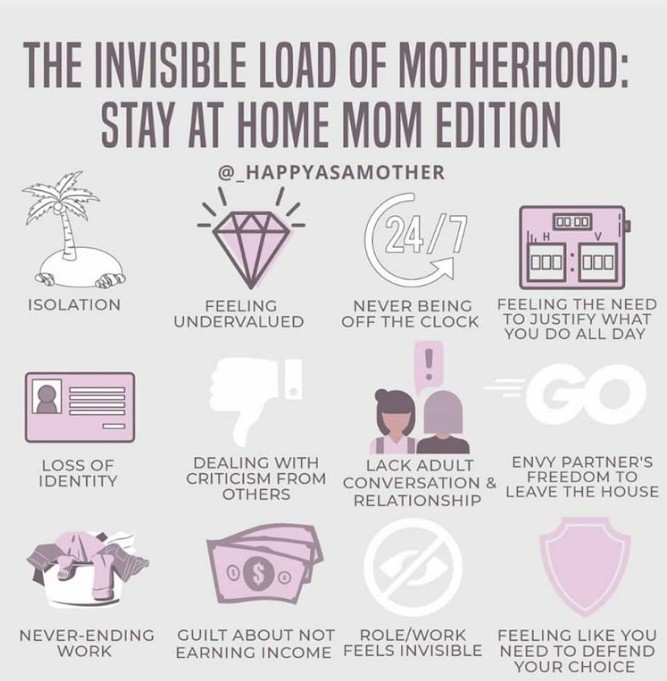
Maternal Mental Health Matters
It’s Maternal Mental Health Awareness Week (2nd - 8th May 2022) – a campaign dedicated to raising awareness of mental health in mothers during pregnancy and the postpartum period. Perinatal mental health problems affect 10 - 20% of women during pregnancy and during the first year after having a baby. Pregnancy can also be a time when women experience mental health issues for the first time, and it’s important to recognise normal pregnancy emotions compared to a mental health condition. 90% of women don’t receive the appropriate support they need for mental health conditions due to the stigma associated with it, often hiding or underplaying their illness.
TW: mentions of baby loss

A five-year review into the maternity services at Shrewsbury and Telford Hospital was released on 30th March 2022. It found that at least 200 babies and nine mothers died due to failings outlined in an extensive report. This news can be triggering and difficult to come to terms with. It is more important than ever that new and expectant mothers know they have a voice, and the right to be heard and feel safe and supported.
This blog post will focus on how employers and workplaces can better support expectant and new parents’ wellbeing during pregnancy, maternity leave, and the return to work. By sharing my experience, along with a Q and A with other new mums, I hope I’m able to provide an honest, open insight into what a supportive working environment for expectant and new mothers can look like, and the importance a supportive company can have on maternal mental health.
This year’s theme for Maternal Mental Health Awareness Week is ‘the power of connection’. This can be building new relationships, working on current relationships, and staying connected with people, including family, friends, and work colleagues. You can benefit from the help of others, and return the favour by offering support to those in need.
The power of connection is important in all aspects of life. Studies have shown strong links between strong social connectedness and mental health benefits such as lower rates of anxiety and depression.
This blog post covers:
Pregnancy
Maternity leave
Return to work
Q&A with new mums
Final thoughts
1. Pregnancy
When you find out you’re pregnant, you can be hit with an array of emotions – regardless of your situation. You can feel happy, excited, and glowing, but also nervous, anxious, tearful and overwhelmed. Planned or unplanned pregnancy, it’s okay to feel however you’re feeling, and normal to feel guilty if your feelings are unexpected. The worries can be endless: how will I cope? Will my life ever return to normal? How will I tell my workplace?
I was nervous about the last one. To date, I am the only woman who has gone on maternity leave at Reddico. We’ve had many dads go on paternity leave over the years, but it was the first time myself and Reddico had to navigate what maternity leave looks like for an expectant, first-time mum.
Additionally, we found ourselves in the midst of a pandemic – no one really knowing what was going on and everyone working out how the business would function each day, whilst supporting each other, the team and clients in a time of real uncertainty. At the time, pregnant people were categorised as ‘high risk’ – it was extremely daunting.
Due to Reddico’s unlimited holiday benefit, I was able to take time off as and when I needed to for scans, midwife appointments, and doctor checkups. I had to go for additional scans due to possible implications with the baby's heart, and last-minute appointments when I experienced reduced movements. The support I received was exceptional, and any work or client calls I had scheduled for that day would be handled and taken care of. This may seem small for some people, but it can sometimes be the little things building up over time that can cause extreme stress. I realise in hindsight that speaking up about how I felt and knowing the person I could reach out to and how Reddico could best support me reduced any future anxieties.
“Employers should take a positive, proactive approach to supporting parents in the workplace, especially during pregnancy and the first postnatal year as this represents a period of increased vulnerability to mental ill-health and a period in the child’s life where their optimal health and development is strongly influenced by parental mental wellbeing” – PATH (Pathways to Perinatal Mental Health)
How can employers help employees during the pregnancy stage?
Regular check-ins
Separate from work-related team meetings, I had a weekly check-in with multiple members of Reddico, where we would talk about how our week had been, what we had planned for the weekend (which wasn’t a lot due to Covid), and any other ad hoc items. Regular check-ins are so important as it helps you process what’s on your mind and allows others to support. It can also help others speak up if they share the same concerns and help you feel more united and less alone … even if it’s just for 10 minutes a week.
Offer mental health support and resources
At Reddico, we use a company called Carecoins, which offers ongoing mental health support. Anyone in the team can use this service, you don’t have to have a previous mental health condition, it’s strictly confidential, and it’s a service you can use as and when you need to.
Having an external, dedicated mental health support company is invaluable. I used this service three months postpartum after experiencing an immediate family emergency, whilst I was trying to look after myself and a newborn and struggling to cope.
Healthy workspace
According to PATH, a healthy workplace should be comfortable and accessible, with adequate lighting, temperature and space. If you’re working from home, employers should promote this for remote working, by offering any necessary equipment to respond to the needs of expectant parents.
Visibility and easy access to your company’s maternity / paternity policy
Uncertainty of expectations and not knowing what is required of you for your company's maternity leave process can cause a lot of unnecessary worry. Our maternity / paternity policy is outlined in the Reddico Handbook which is accessible to anyone at any time, and has links to support services should anyone need them.
Measurement of employee wellbeing and reporting
Team happiness and satisfaction is paramount to our values at Reddico. That’s why a monthly team temperature check is sent out to gauge how people are finding certain aspects of their job and company culture on a scale of 1-9 with areas to comment. In addition, a quarterly NPS (net promoter score) is conducted on how likely people would be able to say Reddico is a great place to work on a scale of 1-9. All answers and feedback is translated back to the team, so you know your voice has been heard. This also gives employees the opportunity to raise any company-wide concerns outside of general team workloads.
Smooth handover of job role / workload
Having a detailed and planned handover, prepared well in advance of going on maternity leave can alleviate any unnecessary stress. Knowing that your work will be in safe hands, and the awareness that you're still part of the team when you return is paramount. It goes without saying, women do not have to sacrifice their careers for starting or having a family. In addition, due to the uncertainty of the pandemic, I had a lot of questions regarding work loads, furlough, our unlimited holiday policy and maternity leave. All my questions were answered in a timely manner which benefited me greatly for planning and expectations.
The right to privacy
Whilst you have to tell employers about your pregnancy at least 15 weeks before the beginning of the week your baby is due, you have the right to keep any other details of your pregnancy to yourself should you wish. I didn’t tell any of my clients that I was pregnant as I didn’t want to be treated any differently or share my personal life beyond what I felt I was comfortable with. To look ‘incompetent’ or if a mistake was made, it was blamed on me being pregnant with ‘pregnancy brain’. In hindsight, this thought process is adding to the stigma and downplaying genuine bodily changes. It also may have helped others understand better what was going on with workloads. You can also view your pregnancy employees’ rights on the government website.
2. Maternity leave
Congratulations! You’ve had your baby. Enter the next level of hormonal changes and the upheaval of baby gifts, visitors and laundry. You can also experience the ‘baby blues’. The baby blues is a time where mothers can feel down, tearful without knowing why, emotional, overwhelmed and irritable. It’s largely down to hormones, entwined with the weight-bearing responsibility of looking after a new human. It affects 80% of women after they give birth and usually passes within two weeks.
Should these feelings tend to linger a little longer than normal, get worse or appear somewhat later after the baby is born, it could be a sign of postpartum depression or post traumatic stress disorder (PTSD). Often, problems can be mis-diagnosed as ‘baby blues’, which is why mums don’t seek help. New mums also feel guilty at feeling low during a time when everyone expects them to be happy.
It’s important to recognise the signs and should you feel it’s affecting everyday life, it’s important to reach out. The NCT website has some great resources on life as a new parent for both mums and dads.
Maternity leave can feel very lonely – especially if you’re on your own, or your partner's paternity leave is coming to an end, and you're left to navigate what the future days look like when routine is near impossible with a newborn. An endless cycle of feed, change, sleep, repeat, minus the crying and any other additional problems in between – overstimulation, needs a cuddle, too hot, too cold, winding, colic, reflux, wind, tongue tie, going through a phase / leap… to name a few.
Therefore, I feel this year’s Maternal Mental Health Week theme, the power of connection, is paramount during this stage. In the early days of maternity leave, colleagues at Reddico regularly checked in with me through our work channel, Workplace. At six weeks postpartum, they arranged to meet up with me and my baby for a gentle stroll (as we were under the rule of six in outdoor spaces). It was lovely to get out the house and catch up on what felt like it had already been a lifetime away from work. I was able to actually participate in an adult conversation, and whilst work was touched upon, it was nice to just generally catch up and to socialise.
(From L-R: Beth Tolson, Katie Layzell, Laura Tyler, Simon Edmonds)
Throughout my maternity leave, I was still able to access all the support that a full or part-time employee would receive, which included mental health support outlined in the above section, as well as access to all social events (virtual and in-person when restrictions were lifted). There was no pressure, but always an open invitation, and I was always thankful to still be included – I never felt like, “Right, you’re on maternity leave now, see you in a year!’’ This power of connection and staying in touch really helped me to not only be involved in conversations, but to keep my toe in the water of work.
What initiatives can employers implement for employees during maternity leave to help with mental wellbeing?
Inclusion in social events
Organising a range of social events, whether that’s a summer party, Christmas party, or more low-key event such as a social walk or virtual quiz, gives mums a chance to catch a mental break.
Keeping In Touch (KIT) days
Employees can work up to 10 days during their maternity or adoption leave. However, these days are optional and both parties need to agree to them. During my maternity leave, I took a total of four KIT days, which I broke up into two training days and two catch-up days with operations and my team.
Staying in touch
Separate to KIT days, staying in touch with colleagues during maternity leave, should you wish to, can help maintain any strong relationships you previously built and help you feel that you're still in the loop, if any social events are not organised. This also links in with having a key contact in your company, should you have any questions or legalities regarding your maternity leave or returning to work.
Finance
Statutory Maternity Pay is paid for up to 39 weeks. However, companies can have their own maternity scheme, such as the one which Reddico details in the handbook. Reddico has a quarterly profit share scheme whereby 5% of the company profits are paid to the team. I remained included in the company profit share scheme, which significantly helped with my financial situation and made the last three months of unpaid maternity leave a lot easier.
3. Return to work
Mental health in the workplace is the leading cause of sickness absence in the UK, with 70 million work days taken each year related to mental health problems. As a result of the pandemic, there is evidence to suggest that new mothers have experienced poor maternal mental health, with concerns that many vulnerable new mothers and children were not identified.
Returning back to work is another huge life event, which can leave you feeling mixed emotions. This can include mum guilt, lack of confidence and self-esteem, a change in your identity, and new responsibilities which takes up additional head space with additional mental loads. The company ‘Happy As A Mother’ visualise these worries in their invisible load series on Instagram:

(source: @happyasamother)

(source: @happyasamother)

(source: @happyasamother)
Depending on individual circumstances, new mums can return to work any time from two weeks after birth (legal requirement) to up to 52 weeks statutory maternity leave. New mums often go back to work within the perinatal period, and it’s important for employers to make the transition from leave to return to work as seamless as possible to avoid any mental health conditions occurring.
As per my request, I was very fortunate that Reddico agreed to reduce my hours from full time to part time, offering three days a week flexible working. I got to choose the days I worked (which were based around my childcare arrangements) and could work the hours that suited me.
How can employers help employees smoothly return to work?
Privacy for breastfeeding
Whilst there is no legal obligation to provide breastfeeding breaks, there are benefits to supporting breastfeeding in the workplace. Mothers will feel highly supported knowing that they can pump/express or breastfeed in the workplace, increasing morale and efficiency, and reducing the risk of stress and absence from work. Breastfeeding can provide challenges in its own right, so having a supportive working environment will alleviate any additional pressures.
At Reddico, there is a specific policy to support breastfeeding, which includes having a private room for breastfeeding/pumping, with a fridge to store expressed milk. After breastfeeding my baby for 13 months, knowing I could take breaks and arrange meetings around my feeding schedule made me feel extremely supported and comfortable.
Healthy workspace
A healthy workspace for new mums is important, especially if they are still in physical recovery. A healthy workspace is outlined on the PATH website.
Flexible hours
Reddico operates in a self-managed way, where you’re given the freedom to dictate how you work. This flexibility in choosing your own working hours and where you work is invaluable to new parents. With new responsibilities comes with new time schedules, so flexible working reduces any stress should last-minute issues arise.
Training sessions
Being on maternity leave can sometimes make you feel out of touch with work or recent developments within your industry, so training and refresher courses are ideal, and help build confidence for when you do return.
There’s a training budget for all Reddico employees to develop and progress their careers as and when they want to.
Dedicated coach & monitoring of wellbeing
All employees at Reddico have coaches who act as supportive sounding boards. One-to-ones are arranged whenever you need them. Having a dedicated coach enables monitoring of wellbeing and allows you a private and confidential space for open discussions.
Signposting
Give employees clear and easy access to information about the internal support available, and outside resources which can direct people to help and advice, as well as what to do in the event of a mental health emergency. If a company has this in place, it’s important that their employees are actually aware of the support available to avoid any chasing or delays, especially in the midst of an emergency.
Back-to-work packs
This is something I have introduced at Reddico and am looking to implement for women going on maternity leave in future. I found that so many things had changed when I came back that it was hard to keep up, especially being part time. Having a back-to-work pack with all the information in one place will help with the settling in process.

Photo by Bethany Beck on Unsplash
4. Q&A
To provide less of a one-sided discussion, we spoke to a handful of new mums to find out what a supportive employer and working environment looks like to them. They all gave birth between 2020-2022 (during the pandemic) and are either currently on maternity leave or have returned to work.
Overall, flexible working was a key benefit to working mums, and alleviated any pressure should last-minute childcare issues occur. However, there needs to be more clarity on signposting and where employees should go, should they need immediate support or long-term resources.
Q. What does a supportive working environment look like to you?
Anon 1 (People & Culture Manager, 22 month old): A manager/company that supports working mothers. This could be:
Understanding that in some cases, a young child may have to be at home with their mother whilst she's working
Flexibility around the working day, allowing for nursery/ childcare drop off/ pick ups
Understanding that having a child can change someone's priorities, but they still want to have a successful career, without it having an impact on family life
Anon 2 (Customer Services Advisor, 10 month old):
Being surrounded by colleagues who are able to bring me up to scratch on updates whilst on maternity leave
Being able to openly talk about my little boy and bring him into conversations
People showing an interest in my little boy, asking about him, and asking how I'm doing as a parent
Accepting that I have responsibilities, some of which are out of my control (i.e if sickness, no childcare)
Being understanding of the financial impact of childcare, and working together to eliminate it (work from home etc)
Anon 3 (Senior Territory Manager, 15 month old): To me, a supportive environment is one that understands and appreciates that family comes first, always. I think when a company is willing to go out of their way to accommodate your new lifestyle, it really does make you feel appreciated and more content at the workplace.
For example, my current employer lets me condense my hours so that I can maintain a full salary. However, they have made it clear that if it is too much, I can swap to four days part time.
I also think a supportive environment needs to consist of a manager who is on your side, who won't reprimand you when you have to finish early to collect a poorly child from nursery, or take a day off, or work from home at short notice because you have no choice.
Finally, I think it is nice to be kept somewhat in the loop during maternity leave, as it is very easy to develop imposter syndrome when you return to a job after a year out, especially if there have been a lot of changes.
Anon 4 (Customer Support Lead, 5 month old): To me, it would be to have regular check-ins, KIT days, and regular communication with your employer so you still feel in the loop and like they care about you. Whilst on maternity leave they still show that they care, despite you not actively working for them.
Anon 5 (Office Administrator, 6 month old): To me, a supportive working environment is one that feels inclusive no matter what, and supports physical, emotional and mental well-being.
When I found out I was pregnant, I had experience of being discriminated against and bullied at my place of work. Being a new mum and it being a first-time pregnancy on top of that, it was extremely difficult to deal with.
At 23 weeks pregnant I started a new job and I was petrified of how I would be treated, but everyone was so kind. It made me realise what a supportive working environment looked and felt like.
Q. What initiatives can employers implement that will help improve mental wellbeing for pregnant / new mums?
Anon 1: Having a flexible working model for new mothers/all staff, such as accommodating part-time working requests, a phased return to work if needed, flexible hours etc, as well as ensuring there are regular check-ins throughout the perinatal period. It can be quite daunting for someone who has worked incredibly hard on their career to hand their role over to another individual whilst they go on maternity leave, so making sure they feel valued and welcomed back when returning to work is vital.
Anon 2: Childcare vouchers, discounts on food in the café (if there’s one onsite), maybe a free coffee every now and then as broken sleep is a killer! Providing a creche would be amazing. A picture frame ready for the new arrival photo on your desk when you return, keeping in contact whilst on maternity leave, events and activities within the office, such as an Easter egg hunt or a Santa visit. A ‘bring your child to work day’, to show them what we do etc.
The above would make a huge difference to me, make me feel appreciated and my little boy valued too.
Anon 3: Flexi working is a big one – if you have the option to finish early to spend a couple of hours with your little one before they go to bed, and then finish off work once they are down for the night it relieves some of the mum guilt. I find it so hard when I really miss her but can't see her, so flexibility is key for me.
Condensed hours are also a great option to improve mental wellbeing. And enhanced maternity pay – as someone who had to exist on maternity allowance, it's super duper hard! Knowing you have a bit more money coming in, especially in the early days, really helps reduce financial pressures. I also think this in turn enhances loyalty towards the employer.
This isn’t really an initiative, but just having a good support network at work can really help. Having someone empathetic and understanding when you are struggling with family-related issues, be it childcare or something else, is so important. It really can be the difference between work feeling like a hindrance vs actually enjoying it. Knowing you can get away if needed does a huge amount for mental wellbeing and again I think it increases loyalty towards the employer.
Anon 4: Having that option of being able to work from home, and flexible working – still being able to go into work, but with flexi hours. It’s all about communication with the employer and still feeling like part of the team. Scheduling regular meetings and KIT days. Having an honest and empathetic manager. Employers need to make sure their employee feels secure coming back to a role in some capacity, and they need to be transparent about the process.
Anon 5: For new parents, perhaps employers could create a more regular check-in system, maybe even another mum, to call and make sure they are doing okay, and help talk it through if they feel overwhelmed. Support when you are a new mum is most definitely needed. I found no amount of preparation actually prepared me for the start of motherhood.
Q. Do you know who to speak to and where you can access resources and support, should you need it?
Anon 1: If I needed support, I would either go to my local doctor's surgery if I was struggling mentally, or I would speak with my manager. I'm not sure where I would turn to if I needed any type of resource.
Anon 2: No idea, although we do have an EAP? So vague that I don't even know what it stands for, or have their details. But they provide support for lots of things, such as mental health and legal advice. I feel that this is my company's get-out clause to say they support mental health etc, but they don't as this is very rarely advertised or spoken about to remind us.
I did speak to my manager recently about support for me being back as a new mum – I said there needs to be more of it. I don't think she cared that much as she hasn't got back to me, and I haven't received any support since I started back in January.
Anon 3: I actually don't know the official answer to this. I'm fortunate that my manager has a baby the same age so is very understanding, so I would usually report to him should I need support.
Anon 4: Yes, I do, only because I was a manager so I know who and where to go to.
Anon 5:I know various places to access support now, that I was not aware of before giving birth and wished I knew more beforehand.
5. Final thoughts
There’s a huge range of support and initiatives employers can implement for their employees to minimise any mental health conditions and promote maternal mental wellbeing. If you, the employee, find yourself in a situation where your mental health is being affected, please seek support.
Where to find advice:
Based on the Q&A, it seems that signposting is still an area that can be improved within workplaces – it’s important to know who you should speak to or where to go to find information. There are lots of online resources, so you don’t have to suffer alone – PATH is a newly funded project which helps prevent, diagnose and manage perinatal mental health conditions.
“You can both love your kids more than anything in life AND say that parenting is the hardest thing ever done at the same time” – big little feelings
Places to donate:
Sign-up to Reddico News
To keep up-to-date with the latest developments in the world of SEO, our insights, industry case studies and company news, sign-up here.




